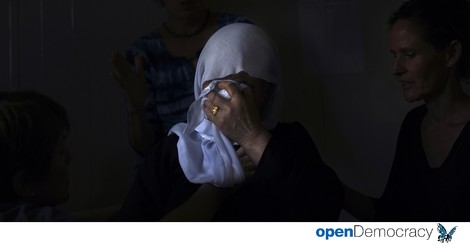Your podcast discovery platform
Curious minds select the most fascinating podcasts from around the world. Discover hand-piqd audio recommendations on your favorite topics.

piqer for: Global finds Health and Sanity Doing Good
Bangalore-based Rashmi Vasudeva's journalism has appeared in many Indian and international publications over the past decade. A features writer with over nine years of experience heading a health and fitness supplement in a mainstream Indian newspaper, her niche areas include health, wellness, fitness, food, nutrition and Indian classical Arts.
Her articles have appeared in various publications including Mint-Wall Street Journal, The Hindu, Deccan Herald (mainstream South Indian newspaper), Smart Life (Health magazine from the Malayala Manorama Group of publications), YourStory (India's media technology platform for entrepreneurs), Avantika (a noir arts and theatre magazine), ZDF (a German public broadcasting company) and others.
In 2006, she was awarded the British Print-Chevening scholarship to pursue a short-term course in new-age journalism at the University of Westminster, U.K. With a double Masters in Globalisation and Media Studies from Aarhus Universitet (Denmark), University of Amsterdam and Swansea University in Wales, U.K., she has also dabbled in academics, travel writing and socio-cultural studies. Mother to a frisky toddler, she hums 'wheels on the bus' while working and keeps a beady eye on the aforementioned toddler's antics.
When Women Are Complicit In War Sex Crimes: A Look At The 'Outliers' (And Our Gender Biases)
When I first read the title, I felt an irrational flash of anger. Was I instinctively reacting as a woman? Perhaps. Sexual violence during wars is deeply entrenched in our minds as horrific crimes committed against women. The idea that women, albeit in a small number, can be perpetrators too, sits uncomfortably in our psyche.
And yet, there are such women. Indeed, very few women make plans that include sexual violations of other women. But academic Laura Sjoberg argues their number should not blind us to the “invisible male victims” and limit our understanding of crimes that don't fit heterosexual narratives.
Her book, she tells the interviewer in this article, puts these “outliers” under the microscope to not just examine the motives and minds of female perpetrators of wartime sexual violence, but also to better understand gendered violence with all its cultural and political implications.
Terming the book distressing, her interviewer describes how it opens with the tale of the "bitch of Buchenwald" - Nazi war criminal Ilse Koch. Stories of how she sexually abused and tortured inmates abound; she was jailed for life but not for sexual violence. Koch was infamous, but nearly 10% of SS guards were women.
It was not Koch but another woman, Lynndie England, who was photographed holding a naked Iraqi prisoner on a leash in Abu Ghraib, who inspired this book. Sjoberg writes in detail about women's involvement in sexual violence during genocides in Armenia, Rwanda, Congo etc.
Among the many gender issues the article raises, I found these two related to the ISIS sex crimes crucial:
a. The gratuitous focus on the details of the sexual violence.
b. The near-complete ignoring of the role ISIS women play in the trafficking of victims, their captivity and torture.
It would be naïve to believe women will always be on the side of other women when it comes to sexual violence. And our gendered view should not make us ignore those who are complicit, even if they are in minority.
